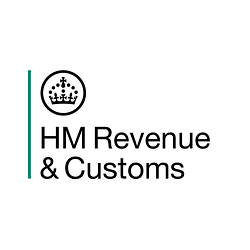
Press release -
HMRC warns of Winter Fuel Payment scams
•More than 15,000 reports of Winter Fuel Payment scam activity in June
•HMRC warns customers to be alert to any scams
•More than 4,600 bogus Winter Fuel Payment related websites removed
HM Revenue and Customs (HMRC) has issued a warning to be on high alert for scams linked to Winter Fuel Payments after receiving 15,100 reports of bogus activity in June.
Fraudsters have been targeting vulnerable individuals using SMS messages and phishing websites. Last month, HMRC took action to remove 4,600 fake websites linked to Winter Fuel Payments.
HMRC is urging individuals to be alert to suspicious communications and to report any suspect phone calls, emails or texts via GOV.UK. HMRC will never contact people by text to claim Winter Fuel Payments or request personal information.
Most people who are eligible for Winter Fuel Payments will receive the payments automatically without having to make a claim. Any recovery of the payment for pensioners whose total income is over £35,000 will be collected via Pay As You Earn (PAYE) or Self Assessment, dependent on how the individual pays tax on their income.
Kelly Paterson, HMRC’s Chief Security Officer, said:
“Don’t be fooled by these attempts by scammers to take your money or access your personal information.
“Never let yourself be rushed. If someone contacts you saying they’re HMRC, wanting you to urgently transfer money or give personal information, be on your guard. If a phone call, text or email is suspicious or unexpected, don’t give out private information or reply, and don’t download attachments or click on links.
“I’m urging people to be alert to scams relating to Winter Fuel Payments and to report any suspicious texts, phone calls or emails to HMRC.
“Taking action now could help HMRC prevent fraud and protect customers who may have received bogus messages.”
For more advice on how to stay safe online, visit the Home Office ‘Stop! Think Fraud’ website at www.gov.uk/stopthinkfraud
Notes to Editors
- Further information on Winter Fuel Payments and how to claim.
- Scams advice from HMRC. Remember:
Protect
- Criminals are cunning – protect your information
- Take a moment to think before parting with your money or information
- Use strong and different passwords on all your accounts so criminals are less able to target you
Recognise
- If a phone call, text or email is suspicious or unexpected, don’t give out private information or reply, and don’t download attachments or click on links
- Check on GOV.UK that the contact is genuinely from HMRC
- Do not trust caller ID on phones. Numbers can be spoofe
Report
- If you’re unsure about a text claiming to be from HMRC forward it to 60599, or an email to phishing@hmrc.gov.uk. Report a tax scam phone call on GOV.UK
- Contact your bank immediately if you’ve had money stolen and report it to Action Fraud. In Scotland, contact police on 101
- By reporting emails, you help stop criminal activity and prevent other people falling victim
2.Follow HMRC’s Press Office on X @HMRCpressoffice
Related links
- Report suspicious HMRC emails, texts, social media accounts and phone calls
- Giving you the knowledge and tools you need to stay ahead of scams.
- HMRC phishing and scams: detailed information
- 24/7 live cyber reporting for businesses
- Report suspicious HMRC emails, texts, social media accounts and phone calls
Topics
Categories
Issued by HM Revenue & Customs Press Office
HM Revenue & Customs (HMRC) is the UK’s tax authority.
HMRC is responsible for making sure that the money is available to fund the UK’s public services and for helping families and individuals with targeted financial support.

